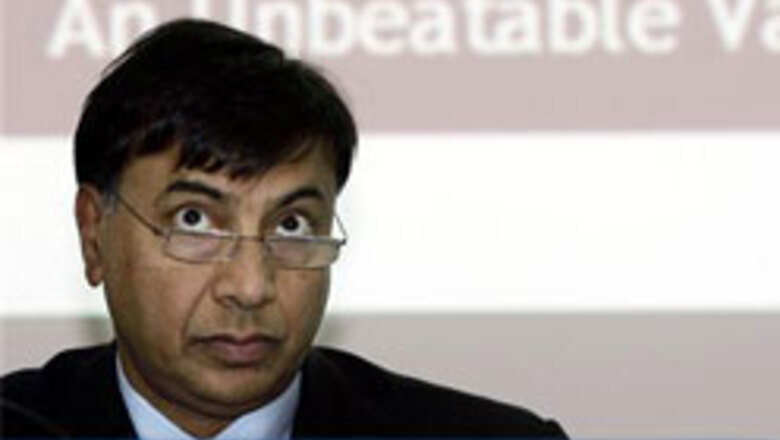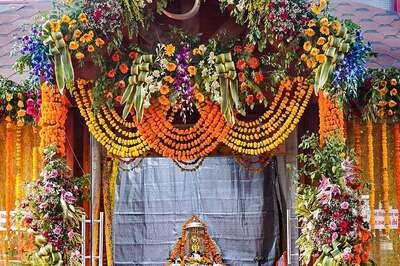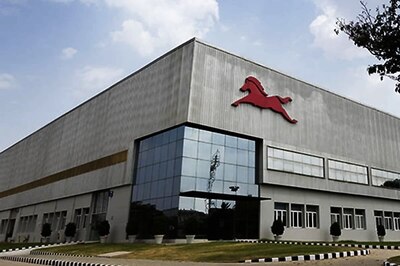
views
Washington: India's emerging economic clout has made it Asia’s top spot for billionaires with its 40 richest businesspeople worth a collective $170 billion, up from $106 billion last year, according to leading American business magazine Forbes.
“India's top ten, worth $112 billion, account for two-thirds of that wealth,” it said in a special report on Monday noting,” India's rising fortunes are underscored by the increasing prosperity of its wealthiest citizens."
"India was one of the world's poorest economies when it won its independence from Britain in 1947. Incredibly, 60 years later, the country's emerging economic clout has made it Asia's top spot for billionaires," Forbes said.
This year, for the first time in two decades of wealth tracking, Forbes counted more Indian than Japanese billionaires in its annual ranking of the world's wealthiest people.
Three Indians even made it to the list of the top 20 of the world's richest. Only the US had more billionaires in the top global ranks.
India's hot stock market, up 39 percent this year, and its robust real estate market helped swell most fortunes. The minimum net worth needed to make the cut rose to $790 million, up from $590 million.
Lakshmi Mittal, who lives in London and forged a landmark deal in June to acquire Luxembourg rival Arcelor, remains No. 1 and is worth $25 billion. Mukesh and Anil Ambani unseated Azim Premji, who had been India's richest resident for years.
The two brothers, who split their business empire last year after a much-publicised feud, have found life alone much richer. Mukesh's fortune rose by $11.5 billion while Anil's increased by $9.3 billion. Still the spat continues with one of Anil's companies recently taking Mukesh's Reliance Industries to court over a gas supply agreement, Forbes noted.
PAGE_BREAK
Many tycoons have been in the news lately for negotiating big deals. Venugopal Dhoot is set to acquire Daewoo Electronics for $700 million.
Commodities magnate Kumar Mangalam Birla paid $1 billion to buy the Tata Group's stake in their telecom joint venture Idea. Banker Uday Kotak bought out Goldman Sach's stake in his bank's investment banking and brokerage arms.
There are five newcomers in the Forbes list, including politically connected Kalanidhi Maran, who runs regional broadcaster Sun TV; Ramesh Chandra, who made a fortune building middle-class housing; and Jignesh Shah, who set up India's largest commodities exchange.
Two others, tractor tycoon Keshub Mahindra and Infosys Technologies cofounder K. Dinesh, return to the list after having previously slipped off.
This year's seven dropouts include India's richest self-made woman, Kiran Mazumdar-Shaw. The stock of her biopharmaceutical firm Biocon dropped 26 percent in the past 12 months. The list's biggest loser was Anurag Dikshit, No. 29, who saw the stock of his Internet gaming outfit, PartyGaming, tank over regulatory issues.
It was a vastly different story in 1987 when Forbes began tracking fortunes around the world. That year the only Indian to make the cut was the Birla family, with a net worth of almost $2 billion.
The Birla family remained the sole Indians on the list for seven years until 1994, when Dhirubhai Ambani of Reliance Industries made his debut with his petrochemicals fortune.
Forbes said India was a relatively sleepy place for the world's wealthiest until three years ago with just nine billionaires in 2004, none ranked higher than 58. That's when wealth began taking off, with the fast-rising stock market and booming real estate sector bringing prosperity as never before.
In the last three years, the Bombay Stock Exchange's benchmark Sensex index soared from 6,000 to more than 15,000 recently. The collective wealth of Indian billionaires jumped six fold from $32 billion to $191 billion in that time.
Veteran investment banker Nimesh Kampani, chairperson of the JM Financial Group and until recently, Morgan Stanley's Indian partner, said that friendlier tax laws, notably the 2004 elimination of capital gains tax on the sale of equity shares, encouraged entrepreneurs to list their companies.
If the stock market keeps rising, the tide of good fortune will continue to create many more of the newly rich, bankers cited by Forbes said. Kampani, for one, predicts India will have 100 billionaires by 2009.



















Comments
0 comment